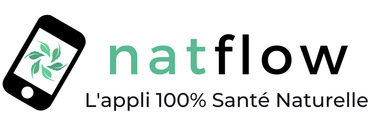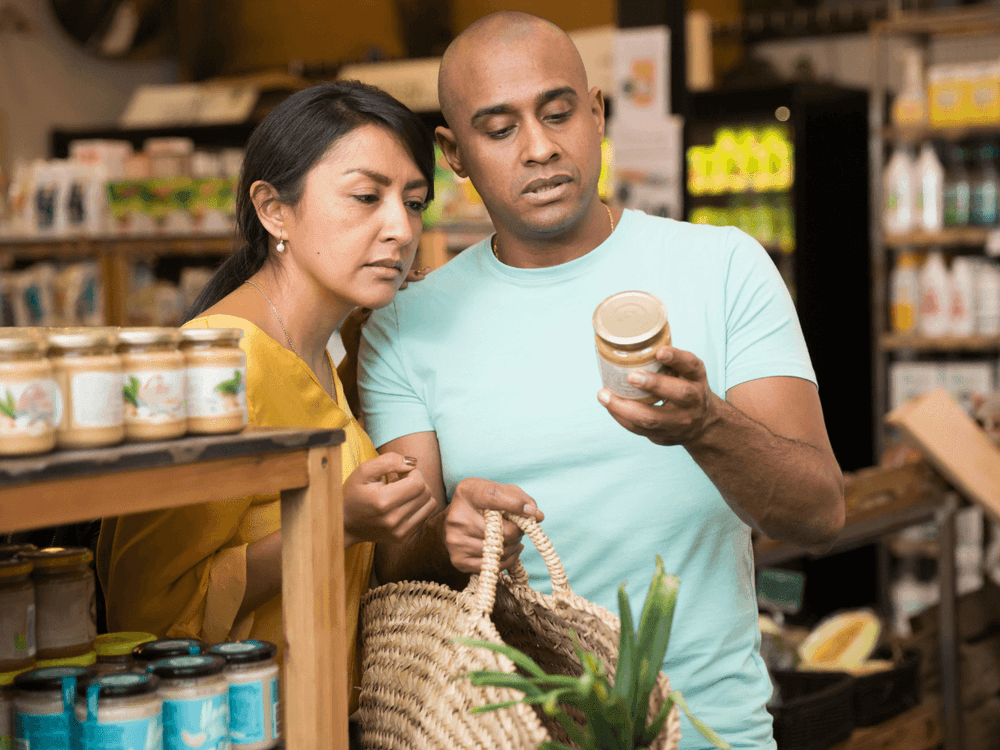Dans un contexte où la préoccupation pour la santé et l'environnement est en plein essor, les labels et certifications alimentaires jouent un rôle essentiel pour orienter les consommateurs. Ils sont devenus des repères de confiance garantissant certaines normes de qualité, de respect de l'environnement ou de santé. Cependant, la diversité des labels disponibles peut parfois prêter à confusion. Dans cet article, nous vous proposons un décryptage des principaux labels et certifications alimentaires afin de mieux comprendre leurs significations et leurs engagements.
Les labels Biologiques : un engagement pour l’environnement
Les produits labellisés « biologiques » ont le vent en poupe, mais que garantissent-ils réellement ? Le label bio assure que l’aliment a été produit dans le respect de pratiques agricoles plus durables, sans pesticides de synthèse, sans OGM et avec des fertilisants naturels.
- Label Européen « Eurofeuille »
Le label bio de l’Union Européenne, identifiable par une feuille stylisée formée d’étoiles blanches sur fond vert, est la certification la plus courante en Europe. Il garantit que le produit contient au moins 95 % d'ingrédients issus de l'agriculture biologique, tout en respectant des normes environnementales strictes. Il s’applique aussi bien aux produits végétaux qu’animaux, ces derniers devant répondre à des conditions spécifiques de bien-être animal.
- Label AB (Agriculture Biologique)
Le label AB est une certification française créée en 1985. Aujourd'hui, il coexiste avec le label européen mais reste un repère bien connu des consommateurs français. Il repose sur les mêmes principes que le label Eurofeuille : absence d'OGM, limitation des additifs, respect de la biodiversité et des cycles naturels.
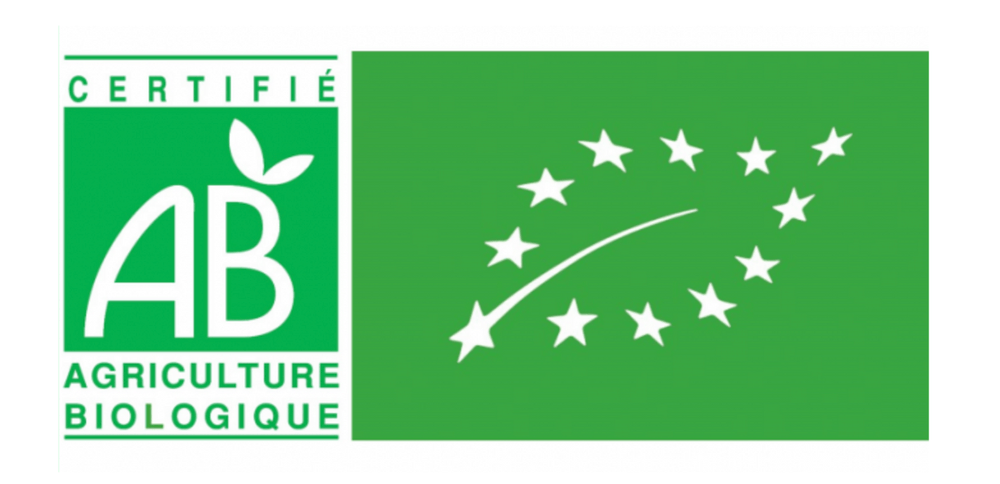
Le label Bleu-Blanc-Cœur : pour une alimentation respectueuse de la santé
Moins connu que les labels bio, Bleu-Blanc-Cœur est une certification innovante qui se concentre sur la qualité nutritionnelle des aliments, notamment la teneur en oméga-3. Il s’agit d’une démarche agricole qui repose sur une alimentation spécifique des animaux (riches en oméga-3, comme le lin ou la luzerne), visant à améliorer la qualité nutritionnelle de la viande, du lait ou des œufs produits.
Bleu-Blanc-Cœur va plus loin que la simple traçabilité des produits, en cherchant à rééquilibrer l’alimentation des consommateurs pour leur santé. Les aliments issus de cette démarche sont reconnus pour être bénéfiques pour le système cardiovasculaire, la gestion du cholestérol et la prévention de certaines maladies inflammatoires.
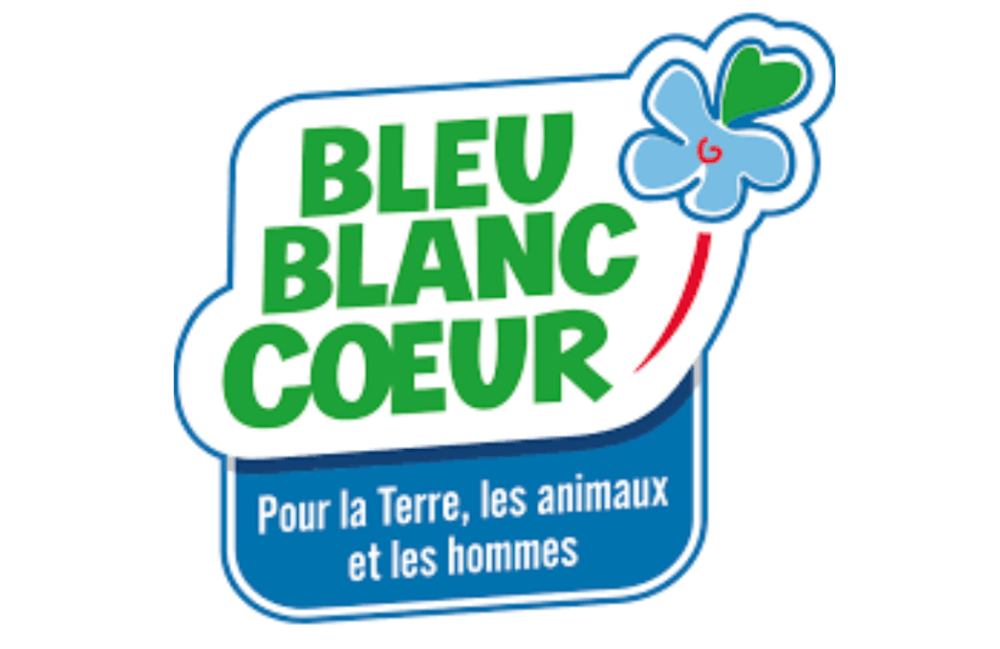
Label Rouge : la qualité supérieure Made in France
Le Label Rouge est une certification française reconnue qui garantit une qualité gustative supérieure. Il est souvent apposé sur des viandes, volailles, produits laitiers, fruits et légumes. La spécificité de ce label est qu'il repose sur des critères stricts de production, de transformation et de conservation, assurant que les produits se distinguent nettement de ceux issus des filières classiques.
Cette certification atteste notamment de conditions de production plus respectueuses des animaux, des modes d’élevage traditionnels et d'une alimentation de qualité, ce qui contribue à une meilleure texture et saveur des produits labellisés.
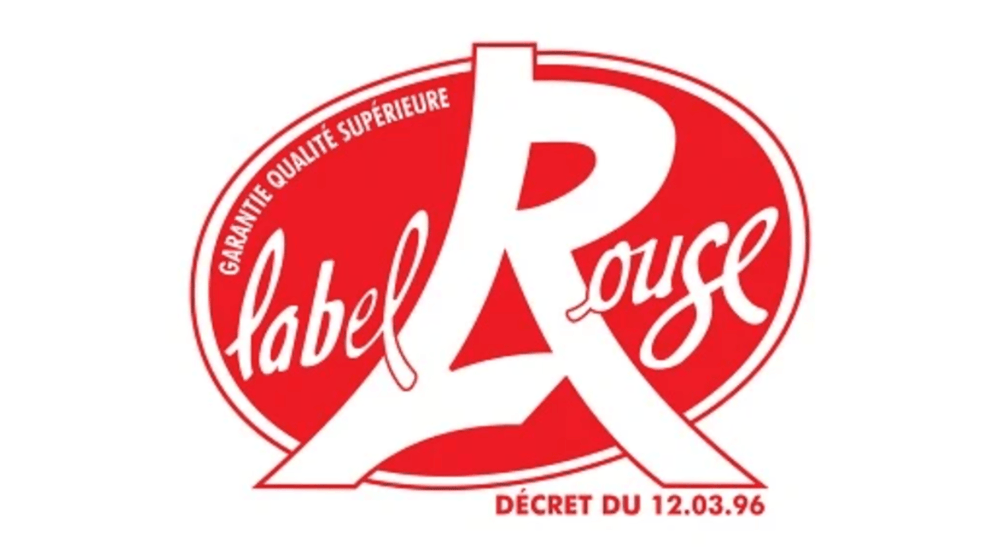
Les labels de Commerce Équitable : un engagement social et environnemental
Dans une démarche de consommation responsable, les labels de commerce équitable comme Fairtrade/Max Havelaar garantissent des pratiques commerciales éthiques et écologiques. Ces certifications assurent que les producteurs, principalement issus de pays en développement, reçoivent un revenu décent et travaillent dans des conditions équitables.
Ce type de label s’applique souvent aux produits tels que le café, le cacao, le sucre ou encore le coton. En plus de l’aspect social, ces labels promeuvent des pratiques agricoles respectueuses de l’environnement, souvent alignées sur les critères du bio, et contribuent ainsi à la lutte contre la déforestation ou l’érosion des sols.
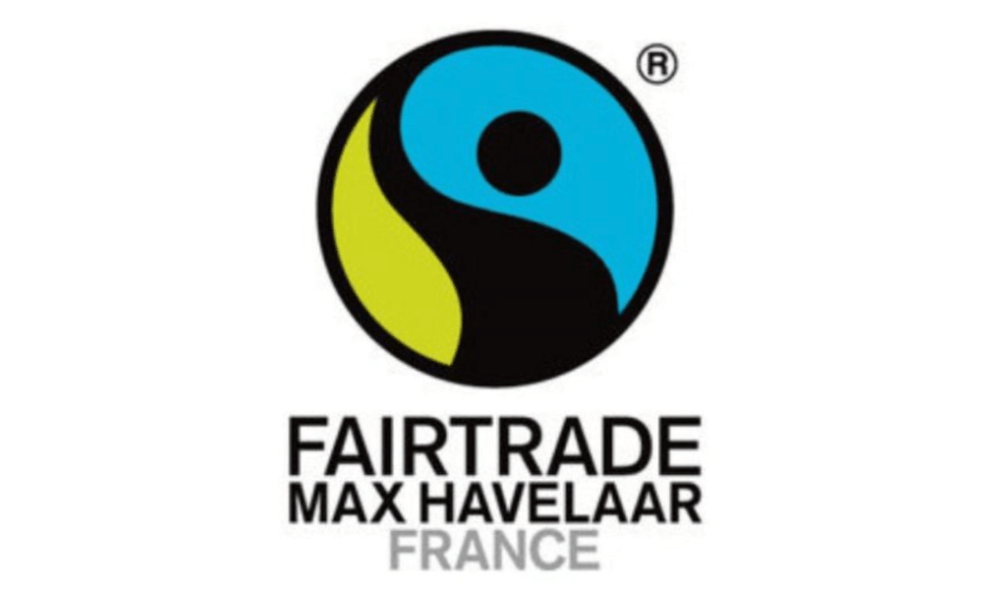
Les Labels de Bien-Être Animal : des normes plus respectueuses
Le bien-être animal est une préoccupation grandissante pour les consommateurs et certaines certifications spécifiques ont émergé pour garantir un élevage plus respectueux des animaux.
- Label "Élevé en Plein Air"
Ce label est fréquemment vu sur des produits comme les œufs ou la volaille. Il atteste que les animaux ont accès à un espace extérieur durant une partie de leur vie, leur permettant de se déplacer librement, ce qui améliore significativement leurs conditions de vie.
Concernant les oeufs, ceux ci sont obligatoirement codés et chaque numéro possède sa propre signification :
0 : Oeufs biologiques
1 : Poule élevée en plein air
2 : Poule élevée en cage
3 : Poule élevée en batterie.
- Label "Bien-Être Animal"
Il s’agit d’un label plus récent qui évalue les conditions d’élevage des animaux selon plusieurs critères comme l’espace disponible, l’accès à l’extérieur, les soins apportés, et la gestion du stress. Ce label prend en compte l'ensemble du cycle de vie des animaux et s'applique principalement aux élevages de porcs, de volailles et de bovins.
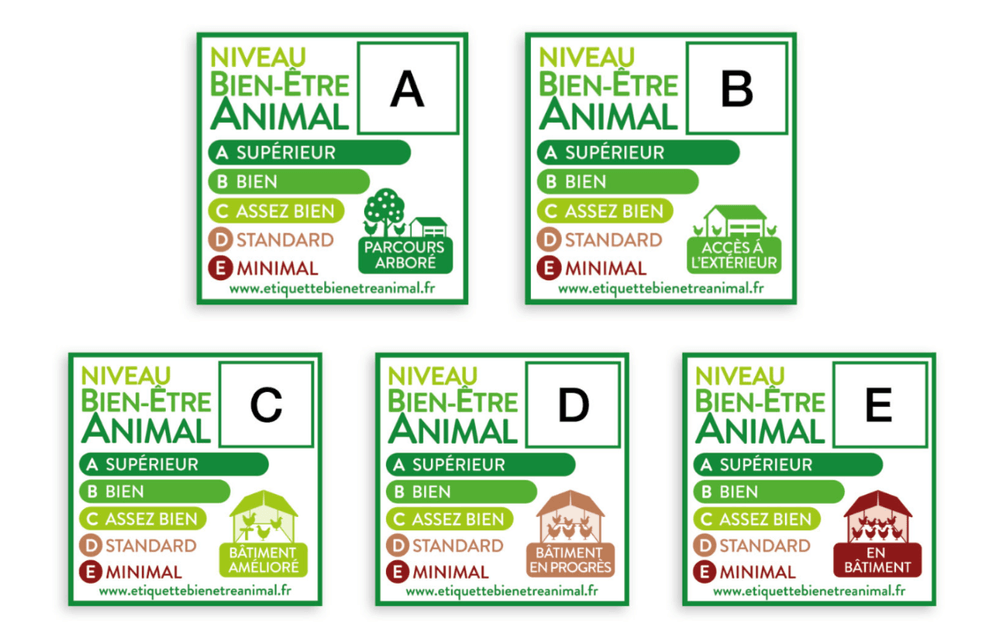
Les Labels Environnementaux : garantir une production durable
Outre les labels biologiques, certains labels visent à certifier des pratiques agricoles particulièrement respectueuses de l’environnement.
- HVE (Haute Valeur Environnementale)
Ce label français garantit une gestion de la biodiversité sur les exploitations agricoles. Il repose sur une approche globale de l'exploitation, prenant en compte la gestion de l'eau, de l'énergie, la préservation des sols et la lutte contre les nuisibles. Ce label est un excellent compromis pour les consommateurs soucieux de l’environnement mais qui ne veulent pas nécessairement se tourner vers le bio.
- Rainforest Alliance
Le label Rainforest Alliance est accordé aux produits qui proviennent de fermes gérées durablement, principalement dans les régions tropicales. Il vise à protéger les écosystèmes, à garantir un revenu décent aux travailleurs agricoles et à préserver la biodiversité.
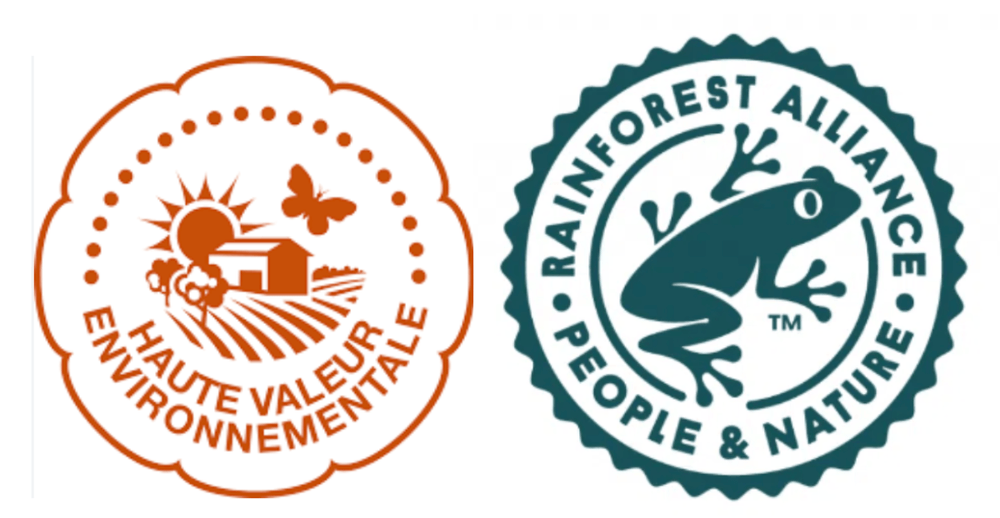
Comment s’y retrouver parmi la multiplicité des labels ?
Face à la variété de labels alimentaires, il peut être difficile de s'y retrouver. Voici quelques conseils pratiques :
- Décryptez l'étiquette : Apprenez à repérer les logos et à comprendre ce qu’ils garantissent réellement.
- Optez pour des labels reconnus : Privilégiez les labels contrôlés par des organismes indépendants, comme le Label AB, Fairtrade, ou encore Rainforest.
- Renseignez-vous sur les critères des labels : Certains labels se concentrent sur un aspect particulier (bien-être animal, environnement, santé), choisissez ceux qui correspondent le plus à vos priorités.
En conclusion, les labels et certifications dans l’alimentation sont des outils précieux pour les consommateurs soucieux de leur santé, du bien-être animal et de l’environnement. Bien que la diversité de ces labels puisse parfois sembler complexe, chacun d'entre eux représente un engagement spécifique. Comprendre leur signification permet de faire des choix alimentaires plus éclairés, en phase avec ses valeurs. À l’heure où la qualité de l’alimentation et les enjeux environnementaux sont cruciaux, les labels constituent un pont entre les consommateurs et les producteurs soucieux de ces questions essentielles.
